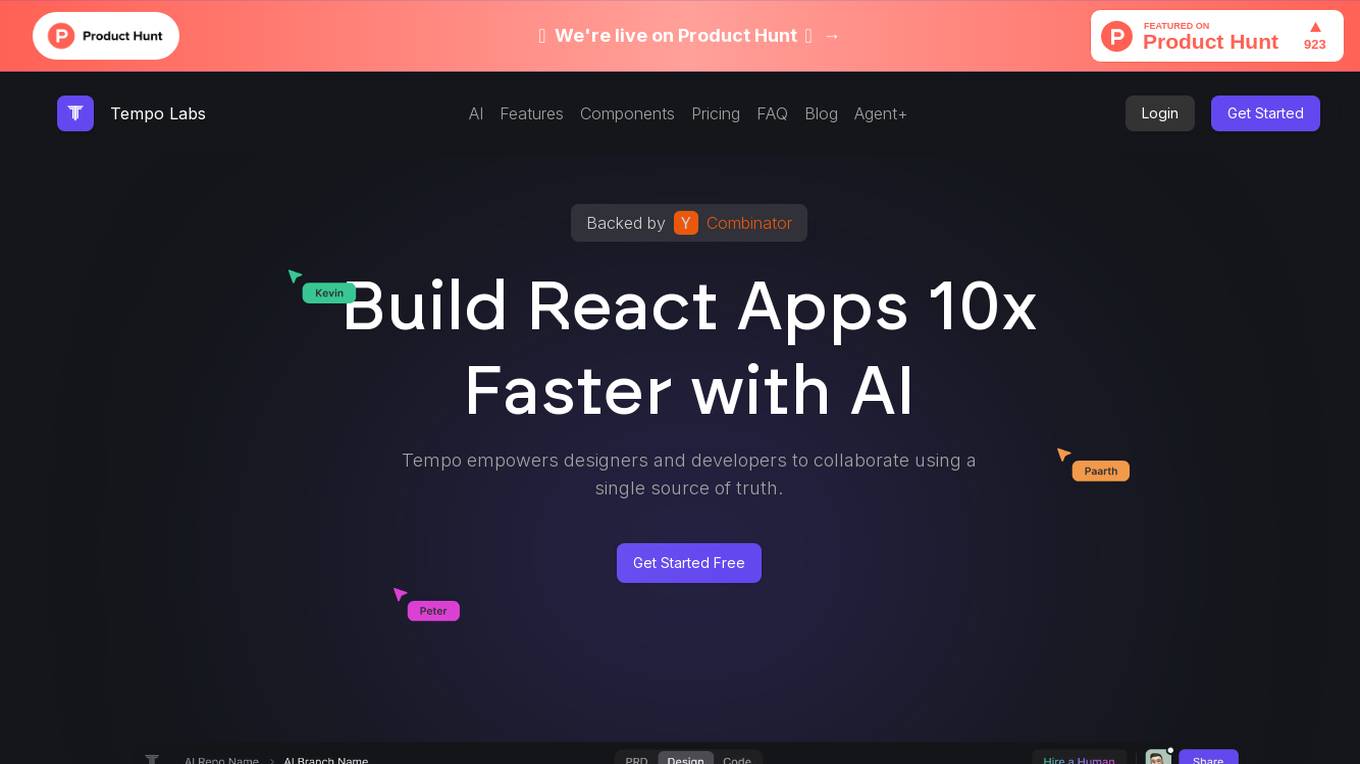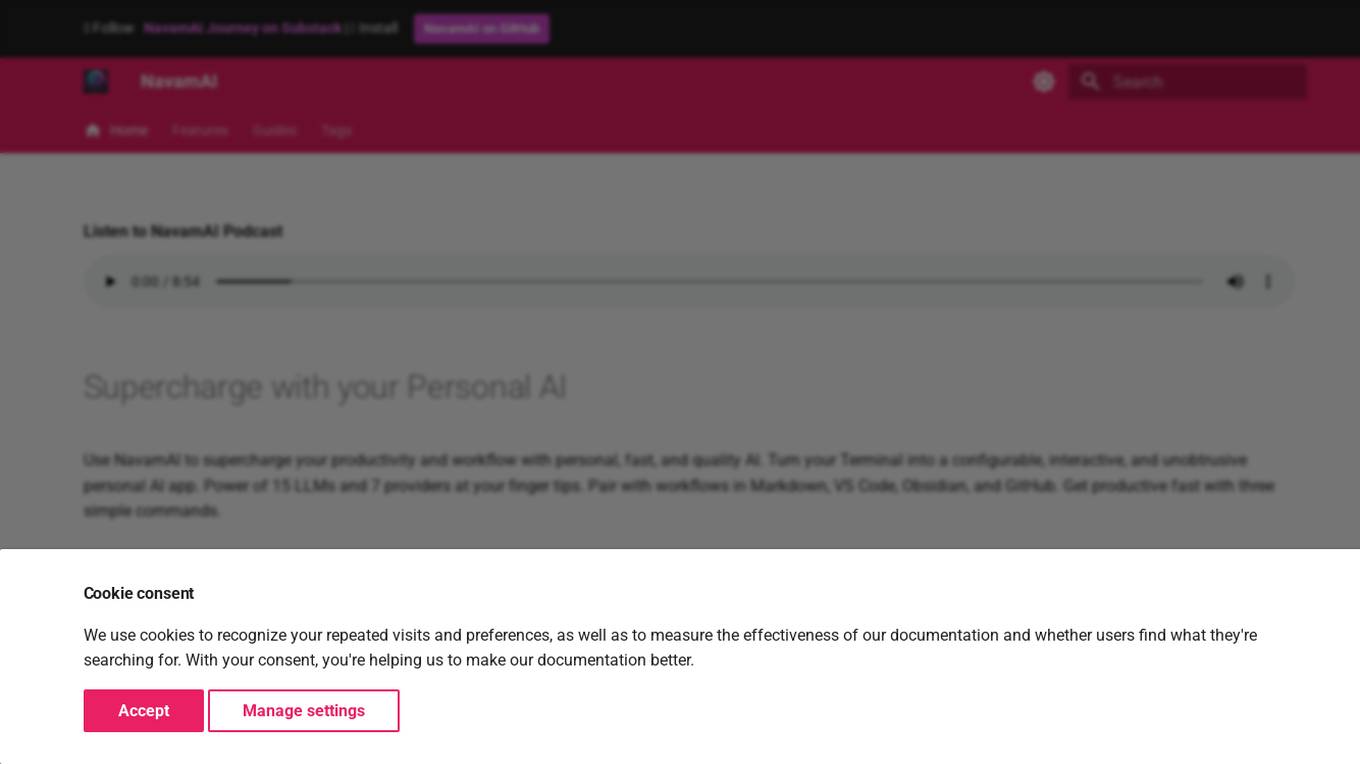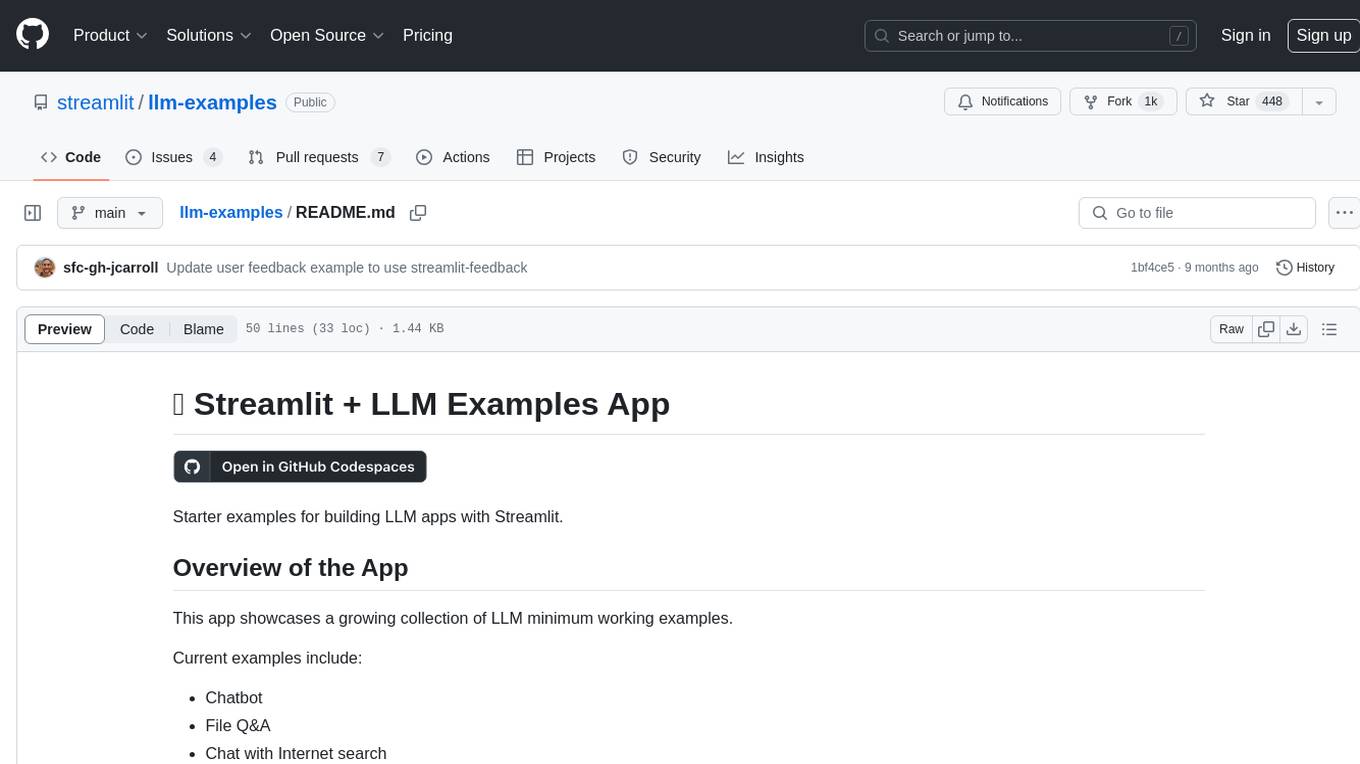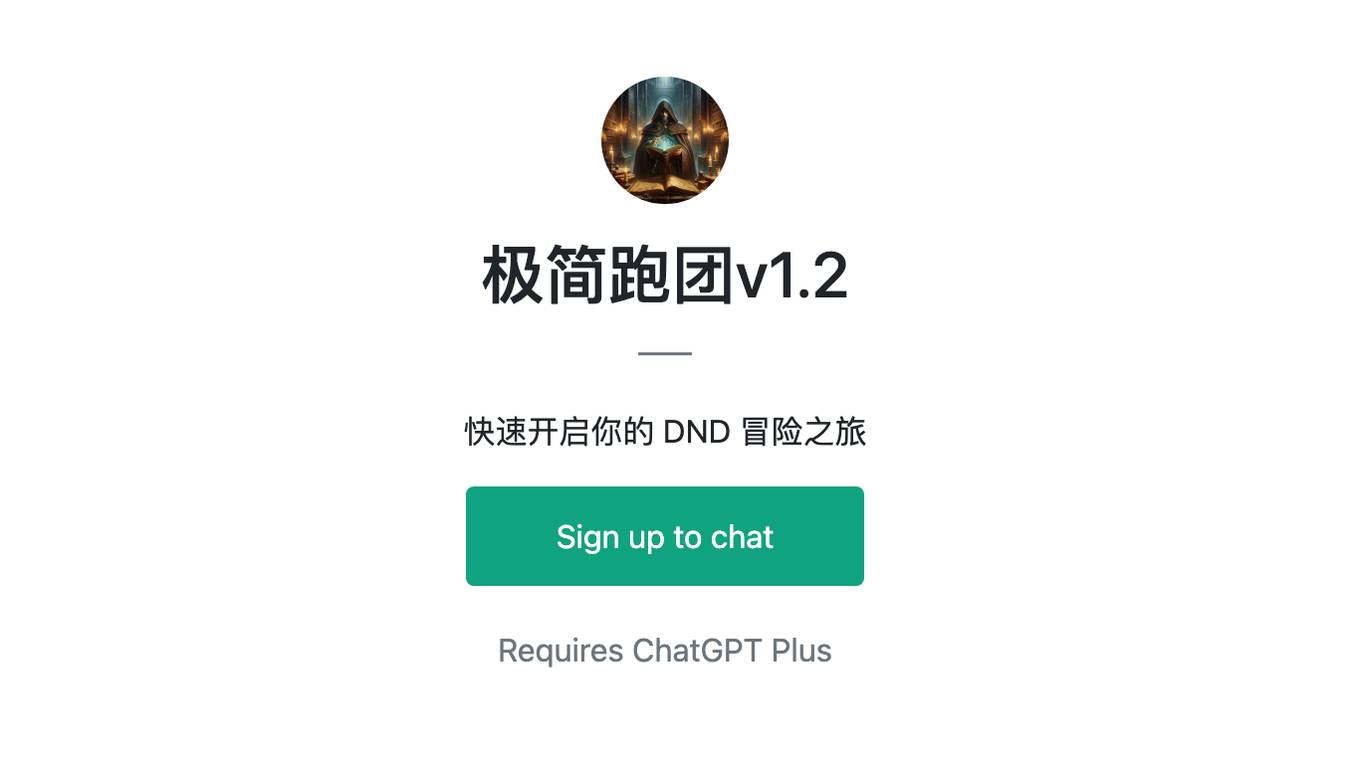Best AI tools for< Quickstart Langchain >
2 - AI tool Sites

Tempo Labs
Tempo Labs is an AI-powered platform that enables designers and developers to collaborate efficiently by providing a single source of truth. With features like generating functional React apps, designing effortlessly with a drag-and-drop editor, and building and maintaining design systems, Tempo Labs empowers users to work 10x faster. The platform supports any React codebase, allows code editing locally in VSCode, and offers a variety of components and templates for quick start. Tempo Labs offers different pricing plans, including a free tier and a premium Agent+ plan with human engineers and designers for quality assurance.

NavamAI
NavamAI is a personal AI tool designed to supercharge productivity and workflow by providing fast and quality AI capabilities. It offers a rich UI within the command prompt, allowing users to interact with 15 language models and 7 providers seamlessly. NavamAI enables users to automate markdown workflows, generate situational apps, and create personalized AI applications with ease. With features like quick start commands, customizable prompts, and privacy controls, NavamAI empowers users to do more with less and make their AI experience their own.
1 - Open Source AI Tools

llm-examples
Starter examples for building LLM apps with Streamlit. This repository showcases a growing collection of LLM minimum working examples, including a Chatbot, File Q&A, Chat with Internet search, LangChain Quickstart, LangChain PromptTemplate, and Chat with user feedback. Users can easily get their own OpenAI API key and set it as an environment variable in Streamlit apps to run the examples locally.
